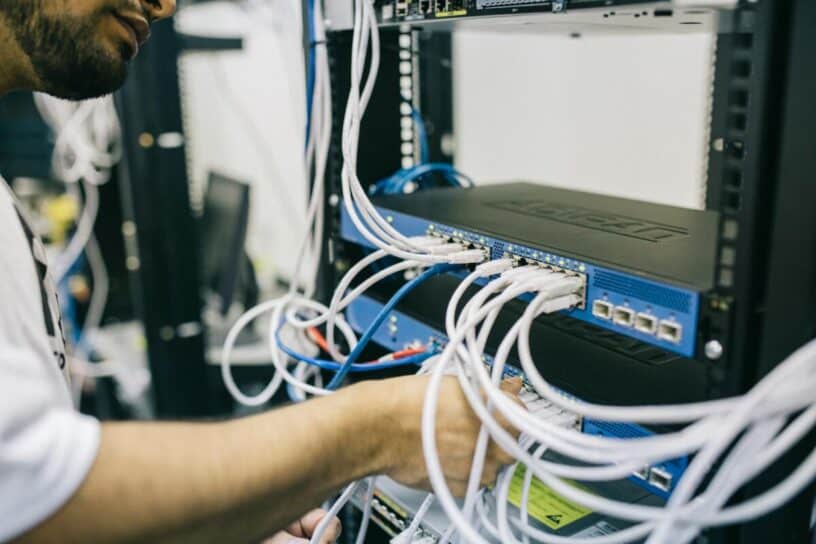
Is your internet doing what it’s supposed to? That’s the real question when it comes to commercial connections. For businesses, it’s not just about being online; it’s about being consistently fast, reliable, and supported when things go wrong. If any of those parts are missing, you’re not getting what you pay for. And that can cost more than money. Downtime leads to frustrated teams, unhappy customers, missed deadlines, and lost revenue.
If you’re considering moving to a proper commercial internet service provider or wondering whether your current one is really doing its job, there are some key things to look for.
Speed: Not Just Fast, but Consistently Fast
Everyone loves fast internet, but what matters more is stable speed. It’s no good hitting high numbers one minute and dropping off the next. The speeds promised in your contract should be what you consistently get. No excuses during peak hours. No vague “up to” numbers that never reflect reality. Reputable commercial ISP providers deliver a guaranteed level of performance because your business depends on it.
And it’s not just about download speeds. Uploads matter too, especially if your team shares large files, works in the cloud, or hosts any services.
What to expect from a solid commercial connection:
- Guaranteed bandwidth, not shared with residential users
- Symmetrical speeds (upload as fast as download)
- Low latency and jitter (essential for video calls, VoIP, and real-time apps)
- Direct routing for faster access to critical services
The best connections are uncontended, meaning you’re not fighting for bandwidth with half the neighbourhood. That’s the sort of infrastructure you want behind your business.
Service: Built for Business, Not Households
Most home internet plans are built on one basic idea — giving you access to the internet. That’s it. No bells, no whistles, and certainly no tailored features. Commercial ISPs take a very different approach.
With a business-grade connection, service goes beyond the basics. You should be getting proactive monitoring, better equipment, and service-level agreements (SLAs) that actually mean something.
Expect your ISP to offer more than just a cable and a login. This includes things like:
- Static IP addresses, which are vital for hosting servers, remote access, and certain security tools
- Real-time monitoring and alerts, to spot issues before they affect you
- Options for tailored infrastructure depending on your needs — multi-site connectivity, private circuits, and so on
- A clear SLA outlining uptime guarantees, response times, and penalties if they’re not met
It’s not just about the features. It’s about being treated like a client whose internet is mission-critical, not just a user who wants to stream something in the evening.
Support: When You Need It, It’s There
Here’s where commercial ISPs really separate themselves. When something goes wrong with your connection — and eventually, something will — who picks up the phone? How fast do they fix it? And do they actually understand your setup?
Residential support teams are often based overseas, limited to reading scripts, and may not grasp the urgency of your situation. That doesn’t fly for businesses. With a real commercial ISP, you should get access to experienced engineers, often locally based, who understand your infrastructure and treat outages like the emergencies they are.
This kind of support should include:
- A direct line to technical support, not a call centre queue
- Fast response times — usually within minutes, not hours
- Engineers who know your system and can diagnose issues fast
- 24/7 availability, especially if your business runs outside standard office hours
And crucially, there should be transparency. You shouldn’t be chasing updates or wondering what’s happening. A decent provider keeps you in the loop every step of the way.
Don’t Confuse Commercial with Business Packages
This one catches a lot of people out. Many providers offer something they label a “business” package, but all it really is is a residential connection with a few extras thrown in. Maybe you get a slightly better router. Maybe the support line is answered a little faster. But underneath it all, it’s still using the same infrastructure as home users.
A true commercial ISP operates on a different level. Their entire network is designed for uptime, performance, and professional-grade reliability. It’s not an upgrade; it’s a completely different product.
If you’re not sure what you’re using, ask yourself:
Is my connection shared with residential traffic?
Do I have any guarantees on speed or uptime?
Can I reach a support engineer who knows my business?
Is the infrastructure designed specifically for commercial use?
If the answer to any of those is no, you might not be getting a truly commercial service, even if you’re paying business rates.
When It Really Matters, So Should Your Connection
Think about how much of your work depends on being online. Emails, meetings, file sharing, payment systems, customer services, collaboration tools… it’s all digital. When the connection slips, the impact is immediate. That makes the quality of your internet connection not just a technical detail, but a business decision.
It’s not just about avoiding downtime, either. A strong commercial ISP helps you grow. It gives you the bandwidth to expand, the tools to collaborate globally, and the infrastructure to build out services without constantly running into limits.
So if you’re still relying on a connection that wasn’t designed for serious business use, it might be time to make a change. Look for a provider that treats your internet like what it is: the backbone of your business.








